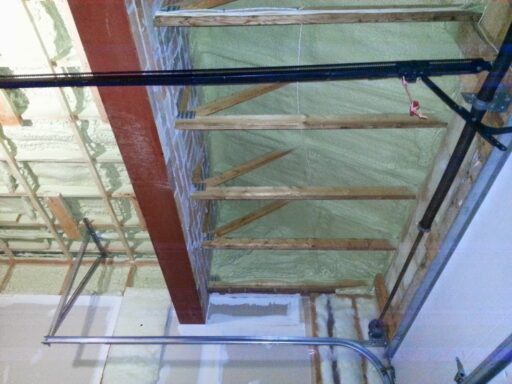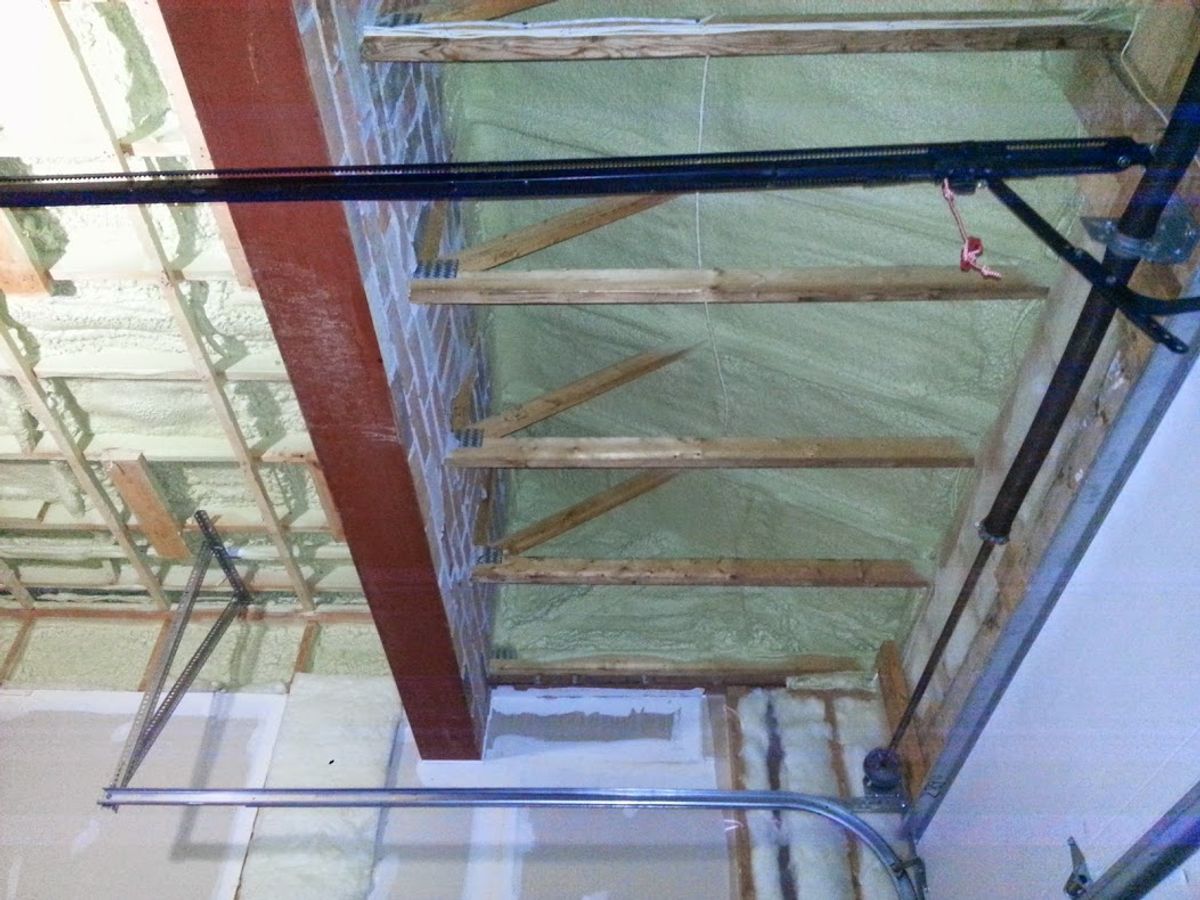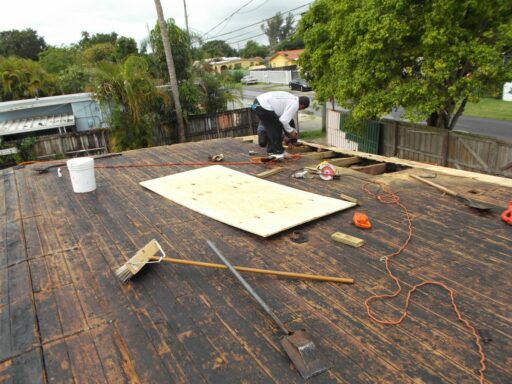When it comes to hiring a spray foam roofing contractor for your pole building, it’s essential to make an informed decision. This article outlines 10 critical questions to consider before making a choice. These questions are designed to help you gauge the contractor’s qualifications, experience, and procedures to ensure a high-quality and safe installation. By asking the right questions, you can ensure that your contractor is well-equipped to handle the specific needs of your project and that they follow industry best practices.
Key Takeaways
- Verify the contractor’s certification and training to ensure they’re qualified to handle spray foam applications.
- Assess the contractor’s experience level to gauge their expertise in handling similar roofing projects.
- Inquire about isolation and ventilation procedures to maintain safety and air quality during installation.
- Ensure the contractor follows proper surface preparation standards to promote effective adhesion and longevity.
- Ask about weather considerations and how the contractor plans to manage application in different conditions.
1. Certification and Training

Ensuring that your spray foam roofing contractor is properly certified and trained is crucial for the success of your roofing project. Certifications from reputable organizations, such as the National Roofing Contractors Association (NRCA), indicate a level of professionalism and expertise that can significantly impact the quality of the work.
When discussing certifications, inquire about the specific programs and levels achieved. For example, the GAF Master Select status is a certification that reflects a contractor’s commitment to quality and ongoing training. It’s also important to verify that the workers who will be on your roof are certified and understand the proper repair and installation methods for your roofing system.
Membership in industry associations can also be a good indicator of a contractor’s dedication to their craft. Associations often provide access to the latest training and industry standards, which can be beneficial for your project.
Lastly, ensure that the contractor has the necessary insurance coverage, such as a minimum of $1 million in general liability insurance, and check their standing with the Better Business Bureau or other relevant entities.
2. Experience Level

When considering a spray foam roofing contractor, experience is a critical factor. It’s not just about the number of years in the business, but also the variety and complexity of projects they have completed. Experienced contractors are more likely to understand the nuances of different roofing systems and how to effectively apply spray foam under varying conditions.
- Ask about the types of projects they have handled.
- Inquire about any specialized training or certifications they have received.
- Determine if they have experience with projects similar to yours.
Ensure that the contractor you choose has a proven track record of quality workmanship and reliability.
Manufacturers may offer different certification levels, which can give you insight into a contractor’s expertise. For example, a GAF Master Select contractor has met stringent requirements, including ongoing training and proper licensing. This certification is a testament to their commitment to excellence and customer satisfaction. Always verify the contractor’s certifications and ask for references to gauge their reputation among past clients.
3. Isolation and Ventilation Procedures

When hiring spray foam roofing contractors, it’s crucial to understand their approach to isolation and ventilation during the application process. Proper isolation involves setting up polyethylene barriers and using exhaust fans to depressurize the work area, ensuring that fumes and particles are contained and expelled.
Ventilation is equally important; it’s not just about removing odors or fumes but also about managing moisture and preventing condensation. A balanced system with adequate eave and ridge vents is often more effective than relying solely on exhaust fans. Here’s a simple checklist to discuss with potential contractors:
- Use of polyethylene barriers for isolation
- Depressurization techniques with exhaust fans
- Balance between air intake and exhaust for ventilation
- Strategies for condensation control
Remember, proper ventilation is not just a comfort issue; it’s a structural necessity to prevent moisture-related damages.
Lastly, inquire about their methods for dealing with persistent odors or moisture issues. While some may suggest heating and ventilating affected areas, the best solution might be the removal of problematic foam, as odors can permeate framing lumber and persist.
4. Surface Preparation Standards

Before the application of spray foam insulation, proper surface preparation is crucial to ensure optimal adhesion and performance. Contractors should adhere to standards such as the ASTM D 4541, which outlines the method for testing the pull-off strength of coatings using portable adhesion testers. This test is essential for determining if the surface is suitable for the SPF system.
Installers must rigorously inspect the substrate for any contaminants like moisture, dirt, or oils that could compromise the foam’s adhesion. Cleaning the surface thoroughly is a mandatory step before proceeding with the application. In cases where the substrate is metal, a pull-tester can be used on-site to assess the necessary adhesion levels.
For certain installations, especially on large metal surfaces, priming the substrate may be necessary to enhance the bond between the SPF and the existing material. Primers not only help in sealing porous surfaces but also improve adhesion to non-porous ones like metal.
It is also imperative for installers to follow the manufacturer’s guidelines regarding pass thickness limits and cooling times between passes to achieve the desired insulation thickness.
Adherence to these standards not only ensures the longevity and efficacy of the insulation but also reflects the contractor’s commitment to quality and customer service.
5. Adhesion Testing Methods

Ensuring the proper adhesion of spray foam insulation is critical for the longevity and effectiveness of the roofing system. Licensed installers must perform adhesion tests to comply with industry standards, such as the ASTM D 4541, which outlines the method for testing the pull-off strength of coatings using portable adhesion testers.
Adhesion tests should be conducted at the start of every project, with each change of chemical lot, and at least every eight hours during application. The results of these tests are not just a formality; they are essential records that must be submitted for third-party review and retention. Here’s a brief overview of the testing process:
- Inspect the substrate surface for moisture, dirt, oils, rust, or other contaminants.
- Clean the surface thoroughly to ensure proper foam adhesion.
- Perform onsite pull-tests to determine the adhesion level, especially on metal surfaces.
It is crucial that the surface preparation and testing are not overlooked, as they are the foundation for a durable and secure spray foam roofing system.
Contractors should provide you with a detailed report of the adhesion test results, ensuring transparency and accountability. Make sure to ask for these documents before finalizing your hiring decision.
6. Weather Considerations for Application

When hiring spray foam roofing contractors, it’s crucial to discuss how weather conditions affect the application process. Proper application is contingent on adhering to specific weather conditions to ensure the quality and durability of the foam. Contractors should be well-versed in the manufacturer’s recommendations and avoid applying spray foam under certain conditions, such as the presence of ice, frost, or surface moisture.
It is essential for contractors to understand the impact of climate on the spray foam’s performance. For instance, in IECC Climate Zone 1A, the use of closed-cell spray foam can significantly enhance wind uplift resistance, which is particularly beneficial under hurricane conditions.
Additionally, the application technique must be adjusted based on the climate zone. In colder regions, like Climate Zone 6, the choice of spray foam and the approach to insulation may differ from warmer areas. Contractors should also be knowledgeable about the required pass thickness limits and cooling times between passes to achieve the desired insulation thickness without compromising the foam’s integrity.
7. Quote Transparency

Understanding the full scope of what you’re paying for is crucial when hiring a spray foam roofing contractor. Ensure the quote is detailed and all-inclusive to avoid unexpected costs later on. Questions to ask include whether the quote covers the removal of existing shingles, replacement of damaged sheathing, the type of flashing used, and if a watertight membrane is included—and to what standard it is applied.
Transparency in the quote not only helps you compare costs but also gives insight into the thoroughness of the contractor’s work.
When comparing quotes, consider the following points:
- The completeness of the quote.
- The quality of materials specified.
- The extent of the work to be done.
- The clarity on what is not included.
Remember, a lower price might not always mean a better deal. Prioritize understanding over cost savings to ensure quality work.
8. Contractor Reputation

When selecting a spray foam roofing contractor, reputation is a critical factor to consider. A contractor’s reputation can provide insights into their reliability, quality of work, and customer satisfaction. To evaluate a contractor’s reputation, start by checking their credentials and ensuring they are licensed to perform work in your state. Most states have online portals for license verification, which can confirm if the contractor’s license is in good standing.
Next, look into the contractor’s online presence, including reviews and ratings from past clients. Websites like Angi list pros along with real ratings and reviews, which can be a valuable resource. For example, a roofer with a 4.2 out of 5 average rating based on thousands of homeowner reviews is likely a trustworthy choice.
It’s also essential to inquire about the contractor’s insurance coverage. Adequate insurance is crucial as it protects both you and the contractor in case of any unforeseen incidents during the project.
Finally, ask for references or examples of past work. A reputable contractor should be willing to showcase their previous projects and provide testimonials from satisfied customers. This step can give you confidence in their ability to deliver quality service.
9. Safety and Protective Measures

When hiring spray foam roofing contractors, safety should be your top priority. A professional contractor will have a clear safety plan in place, which includes adherence to national and local code requirements for fire protection. For instance, exposed Spray Polyurethane Foam (SPF) may need additional measures such as a thermal barrier for fire safety.
It’s essential to ensure that the contractor follows best practices for the installation of SPF, including proper cooling times and pass thickness limits as per manufacturers’ guidelines.
Contractors should also be prepared to manage the worksite effectively, communicating any necessary precautions to you and your neighbors. This includes roping off areas or protecting landscaping during the project. Lastly, consider the compatibility of roofing materials if you plan to integrate solar panels, and ensure that the contractor uses proper equipment and protocols to maintain a safe working environment.
10. Warranty and Service Guarantees
When selecting a spray foam roofing contractor, it’s crucial to understand the warranty and service guarantees offered. Ensure the warranty covers both materials and workmanship, as this provides comprehensive protection for your roofing investment. Warranties can vary significantly, so ask for details on what is included and the duration of coverage.
- Duration of Warranty: How long does the coverage last?
- Scope of Coverage: Does it include both materials and labor?
- Transferability: Can the warranty be transferred to a new homeowner?
- Exclusions: Are there any specific damages or issues not covered?
It’s essential to have a clear understanding of the warranty terms to avoid unexpected expenses in the future. A robust warranty is a sign of a contractor’s confidence in their work and commitment to customer satisfaction.
Be wary of contractors who do not offer a clear warranty or service guarantees. This could indicate a lack of accountability and increase the risk of future costs. Always read the fine print and ask for clarification on any points that are unclear to you.
Conclusion
In conclusion, selecting the right spray foam roofing contractor is crucial for ensuring the longevity and efficiency of your insulation project. It’s important to ask the right questions regarding their training, certification, and experience. Make sure they follow proper safety protocols, including isolating the work area and using a fan to depressurize the spray zones. Assessing the weather conditions and surface preparation is also key to a successful application. By doing your due diligence and ensuring your contractor adheres to best practices, you can achieve optimal results for your pole building’s insulation. Remember, a well-informed decision will lead to a comfortable, energy-efficient, and durable roofing system.
Frequently Asked Questions
What certifications should a spray foam roofing contractor have?
A reputable spray foam contractor should have certifications from industry-recognized organizations, demonstrating their training and proficiency in spray foam application and safety.
How can I verify a contractor’s experience with spray foam roofing?
Ask for references, review past project portfolios, and inquire about the number of years they have been working with spray foam roofing systems.
What isolation and ventilation procedures are necessary during spray foam application?
Contractors should isolate the work area and use fans to depressurize it to prevent spray foam fumes from spreading to other areas.
How do contractors ensure proper surface preparation for spray foam roofing?
Contractors should inspect the substrate for moisture, dirt, and other contaminants, cleaning the surface thoroughly before applying spray foam.
What is adhesion testing, and why is it important for spray foam roofing?
Adhesion testing, such as a pull-test, ensures that the spray foam will adhere properly to the roofing substrate, which is crucial for long-term performance.
How do weather conditions affect spray foam roofing application?
Spray foam should not be applied in the presence of ice, frost, or surface moisture. Contractors must follow manufacturer guidelines and adjust for climatic conditions.





